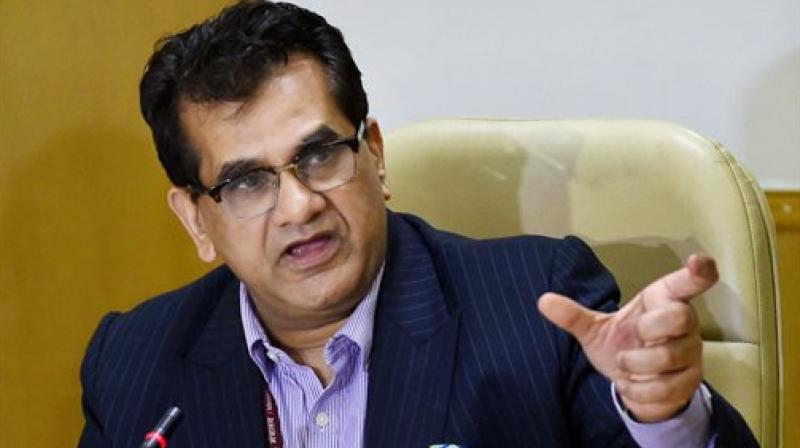Future has to be shared, connected, electric: Amitabh Kant

Hyderabad: Two-thirds of vehicle movement and one-third of concrete will decrease if cities grow organically, with a capillary network of transportation, where all kinds of vehicles—cars, bikes, and cycles, as also pedestrians —can be accommodated.
While the present generation of Indian architects have been trained in the United States, where sprawling cities are developed with arterial network for cars, this is the wrong model for India, according to Amitabh Kant, CEO, NITI Aayog, who spoke on ‘What will the cities of tomorrow look like,’ at the Global Entrepreneurship Summit (GES) on Wednesday.
“India should unlearn what Americans have taught them. Americans have the luxury of creating a city like Atlanta where nobody has to walk.
“They created a city for cars and not for people. The lesson for an emerging country is the process of organising. Contemporary urban planners ensured that there is no place for cycling or walking. There is a need to reverse everything because the future has to be shared, connected, electric,” Mr Kant said.
Better liveability among compact, dense populations comes from more people using public transport. A smart city is about people. Additionally, people should have a sense of ownership without which smart cities can never happen. “Smart cities have to be people centric, public transport centric, recycle centric, water recycling centric,” Mr Kant said.
Priyanka Bakaya, founder of a company called Renewlogy, another speaker at the summit, spoke about the importance of recycling. “India has unique opportunities and challenges in terms of recycling,” she said.
“The traditional model of handling waste makes the most sense for India. With conventional containers like lunch boxes and reusable bags, there was not much waste. The younger generation should look back at the past and at what works the best and not follow other countries.”
Electric vehicles will be a game-changer in smart cities. But despite all the talk of electric vehicles, they account for only one per cent of the existing vehicles. This is because the cost of the battery is high.
Amory Lovins, chief scientist at Rocky Mountain Institute, who helped Infosys save 40 per cent of its electricity costs in Bengaluru, said, “Smart battery designs for an electric rickshaw and access to all drivers will be a major contributor to eco-friendly urbanisation.” Battery costs are expected to come down by 2025.
As the speakers pointed out, the solutions are many; the point is how many will be implemented.

